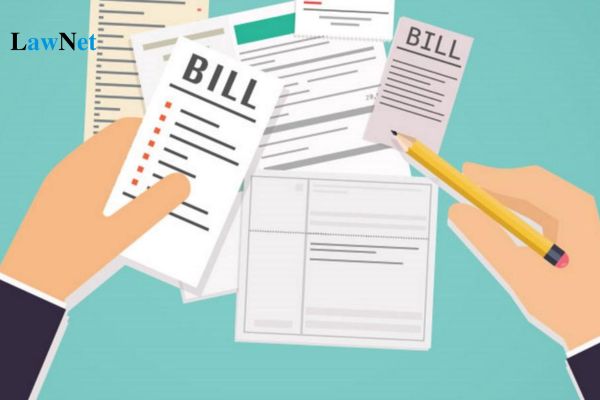What is a VAT invoice? Shall VAT invoices be authenticated in Vietnam?
What is a VAT Invoice?
Pursuant to the provisions in Clause 1, Article 3 of Decree 123/2020/ND-CP, an invoice is an accounting document issued by an organization or individual selling goods or providing services, recording the information of goods sold or services provided. Invoices can be in the form of electronic invoices or invoices printed by the tax authority.
Thus, a VAT invoice, also known as a value-added tax invoice or "red invoice," is a type of document issued by the seller to the buyer of goods or services to record the value of goods sold or services provided for the purpose of VAT declaration and payment.
When is the VAT invoice used in Vietnam?
Based on the provisions in Clause 1, Article 8 of Decree 123/2020/ND-CP, a VAT invoice (value-added tax invoice) is for organizations that declare VAT using the deduction method, for use in activities such as:
- Sales of goods, provision of services within the domestic market;- International transportation activities;- Exports to non-tariff zones and cases considered as exports;- Export of goods, provision of services abroad.

What is a VAT invoice? Shall VAT invoices be authenticated in Vietnam? (Image from the Internet)
Shall VAT invoices be authenticated in Vietnam?
According to the provision in Article 2 of Decree 23/2015/ND-CP regarding types of authentication, it includes:
- “Authentication of a copy from the original” is where a competent authority or organization, as prescribed in Decree 23/2015/ND-CP, certifies that a copy is true to its original based on the original document.
Where the original is defined as documents initially issued, reissued, or issued upon re-registration by a competent authority or organization; documents personally created by individuals with confirmation and seal from a competent authority or organization.
- “Signature authentication” is where a competent authority or organization, as prescribed in Decree 23/2015/ND-CP, authenticates that the signature in a document belongs to the signing person requesting authentication.
- “Authentication of contracts and transactions” is where a competent authority, as specified in Decree 23/2015/ND-CP, authenticates the time and place of contract or transaction conclusion; civil capacity, voluntary intention, signatures or fingerprints of the parties involved.
Simultaneously, according to Article 18 of Decree 23/2015/ND-CP which prescribes the papers and documents used as a basis for authentication of copies from the original:
+ The original documents issued by a competent authority or organization;
+ Personal documents self-created with confirmation and seal from a competent authority or organization.
Furthermore, under Article 22 of Decree 23/2015/ND-CP, there are cases where the original documents cannot be used as a basis for authentication of copies, including:
+ Originals that have been erased, edited, or contain unlawful content: Originals should not be illegally altered or modified.
+ Originals that are damaged, worn, or whose content cannot be identified: Originals must be in good condition and undamaged to ensure accuracy.
+ Originals stamped as confidential by a competent authority or not stamped but explicitly stated as not to be copied: Originals must maintain their confidentiality seal (if any) and should not be altered or copied when prohibited.
+ Originals containing illegal, socially unethical content; propagating, inciting war or against the policies of the Socialist Republic of Vietnam; distorting national history; insulting the honor, dignity, and reputation of individuals or organizations; infringing on citizens' rights: Originals must not contain information violating laws or social ethics.
+ Originals issued by competent foreign authorities, notarized or certified that have not been consularly legalized: If originals do not comply with consular legalization regulations, they cannot be used for authentication of copies.
+ Personal documents self-created without confirmation and seal from a competent authority or organization: For self-created documents, confirmation and seal from a competent authority or organization are required to be used as a basis for authentication.
Moreover, according to Official Dispatch 9639/BCT-PC of 2016 of the Ministry of Industry and Trade, VAT invoices are not among the documents permitted for authentication as per Article 18 of Decree 23/2015/ND-CP.
Based on the above provisions, the authentication of a copy from the original is the authentication of documents issued initially, reissued, or upon re-registration by a competent authority or organization. If it is a document personally created, it must have confirmation and seal from a competent authority or organization.
Therefore, VAT invoices do not meet the above conditions and thus cannot be authenticated from the original.

